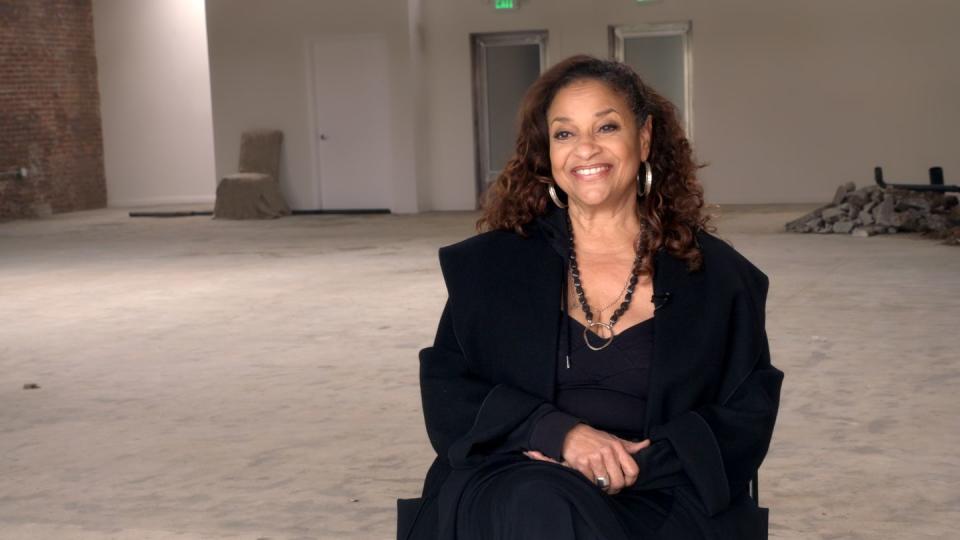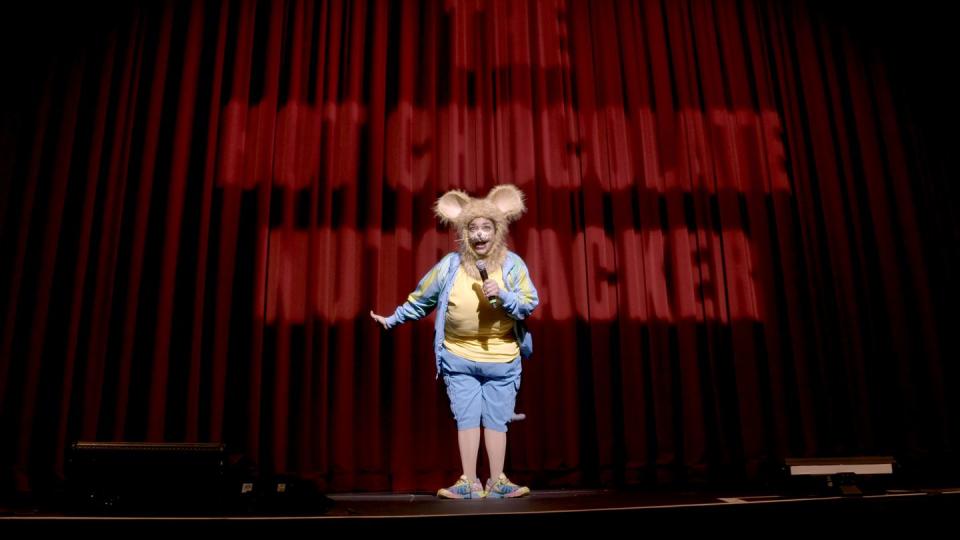Debbie Allen Saves Christmas with Her Hot Chocolate Nutcracker

Die Hard, Home Alone, The Nutcracker. There are some cultural touchstones that are nearly impossible to separate from the holiday season. This year, as many dance companies remain shut, there might not be as many Nutcrackers as we’re used to seeing—but thanks to Debbie Allen, we’ll still have one.
On November 27, Dance Dreams: Hot Chocolate Nutcracker will premiere on Netflix. The documentary follows Allen and the staff, students, and extended family of her Los Angeles dance school, the Debbie Allen Dance Academy, through the production of their anticipated annual Hot Chocolate Nutcracker—a beloved local tradition that stars more than 200 children and a smattering of professional actors, including Allen herself.

It’s more than just a look at the production, however; director Oliver Bokelberg’s film also tells the story of Allen’s own life and career, offering candid commentary from the Emmy, Tony, and Golden Globe winner about how the performing arts formed her life and inspired her to teach. In fact, teaching’s something she’s still doing today; Allen—whose recent projects include producing Grey’s Anatomy, which recently began its 17th season, and directing Dolly Parton in the just-released A Christmas Carol update Christmas on the Square—leads weekly Instagram dance classes that regularly pull in thousands of viewers.
Here, Allen talks to T&C about adapting The Nutcracker and how she ended up starring in a documentary she didn’t even realize was being filmed.
This is a year when so many of us who love The Nutcracker might not see it. What do you think it is about that work that makes it such a touchstone?
George Balanchine identified something that was brilliant. He was trying to find a way to support his dance company, he was out of money and it was Christmas, and it occurred to him that The Nutcracker could become a huge brand for all of America, and he was right. You can’t walk away without humming the score—the music is infectious and the magic of it all is just delightful. It absolutely smells like Christmas. It’s something people need, and in today’s world we need every version we can get.

What inspired you to film a documentary about the making of your Hot Chocolate Nutcracker?
The truth is I didn’t know we were shooting a documentary when I told Oliver he could come into my class. He’s someone who’s a Debbie Allen Dance Academy parent and also one of the best directors of photography I know; Olivier doesn’t go anywhere without a camera. So, he had shot some of our recitals and had taken photos for us, and he asked one day if he could come into rehearsal. I said fine, as long as you stay out of my way and I don’t know you’re there, I don’t want to be bothered with that. He was shooting and shooting, and I would forget that he was in the room. That’s how he truly captured when I consider cinema verité. Because he’s a DADA parent, he knows who the kids are, and he knew who to talk to. Finally, he told me he had over 100 hours of footage—should we do something?
What did you decide to do?
We got an editor to help us and he put it together and showed it to Shonda Rhimes, who called me and said, “I’ve got to have this.” Shonda took it and it became what it is now. This was the brainchild of a father who loved his daughter training at DADA and loved watching us rehearse and wanted to capture it, and Shonda Rhimes, who’s one of the most prolific creators in our business, seeing something she felt the world would love to see.
How did you end up making your own Nutcracker?
What was important to me with The Nutcracker was to create something that had a real spine to it, that had my take on it. That’s why in the show, there are three rats who take over the story—they stumble through all of these wonderful lands, kind of like the Three Stooges. We’re telling a story where you see a Black Fairy Queen fly onto the stage.
I took my son as a young boy to see a traditional Nutcracker and he was bored to death. He screamed out, “Mom, when is the rat coming?” And I realized there was room for that—so I created my own take on it, including rats. There are so many versions of The Nutcracker, including others told from the Black point of view, but this one is specifically mine. It’s musical theater, it has singing and dancing. You don’t see the full performance in the documentary, but maybe one day we’ll do a whole Hot Chocolate Nutcracker movie.
Is there anything you learned about your own work from seeing the film?
I walked away inspired to do more, because I know everything that got left on the editing floor, and I know all 200 of the kids on that stage. Each one of them brought so much joy to the show and it gave them each such a sense of confidence and prize. I’ll never forget when Beyonce and Jay-Z came to see the show, and she said she had no idea it would be so professional; what we do is fun but it’s also important.
You Might Also Like


